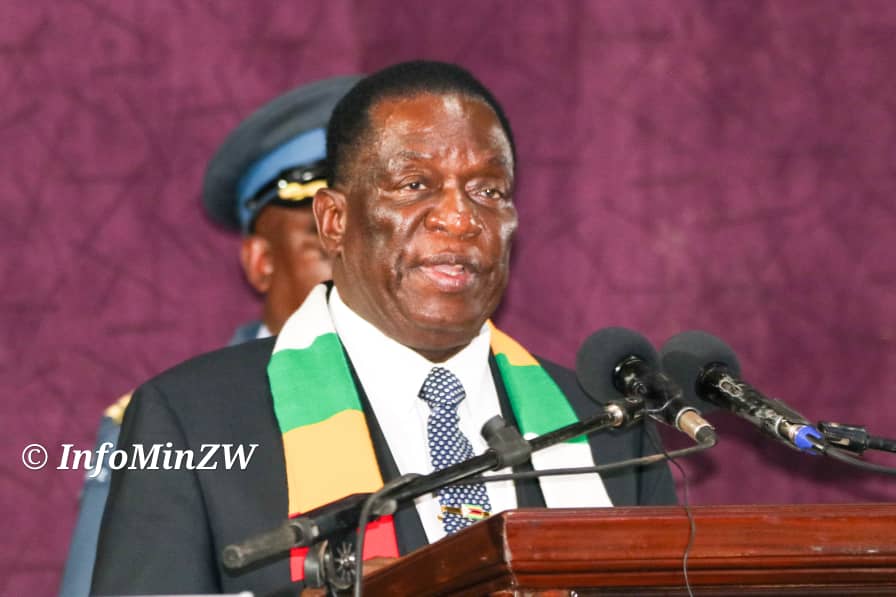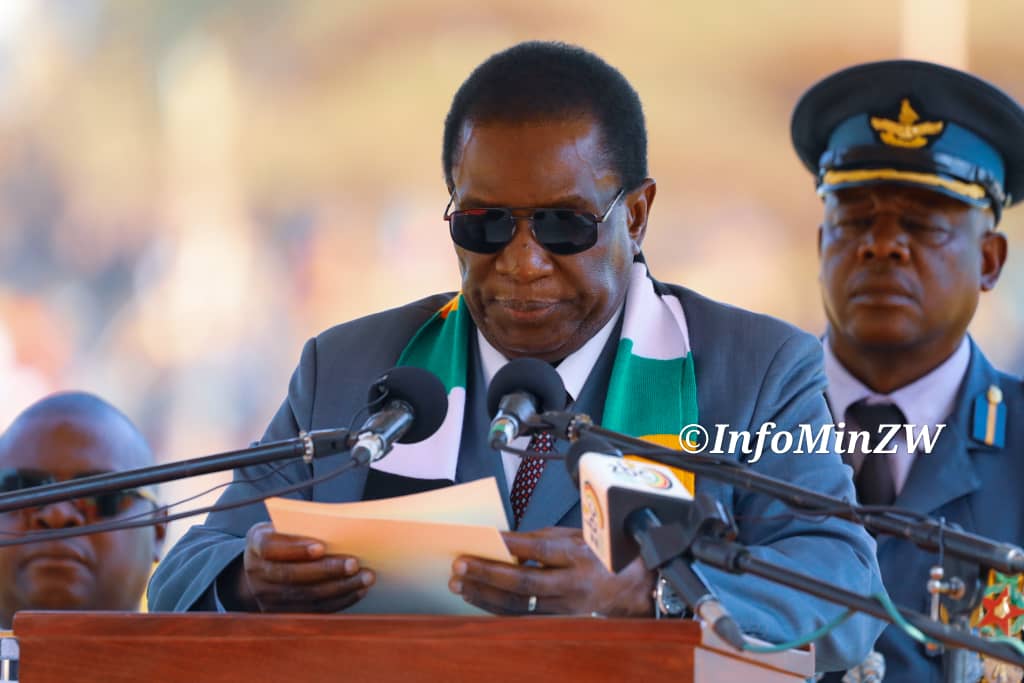President Mnangagwa urges researchers to double efforts
Share

Harare (New Ziana) – President Emmerson Mnangagwa has challenged the Research Council of Zimbabwe and its stakeholders in the research and innovation space to engage in transformative research that improves resilience in communities and a higher quality of life for people.
He made the remarks during the official opening of the inaugural National Research, Science, Technology and Innovation conference in the capital on Monday.
He said research must be correctly contextualized into national needs, realities and development priorities.
“Stakeholders are called upon to adopt strategies and models which build greater national research self-reliance and autonomy. A balance should be reached between external perspectives and approaches with our heritage-based and locally generated science, technology and innovation,” President Mnangagwa said.
“We must remain Zimbabwean and African in our thoughts and deeds. This is a key ingredient for economic growth, modernization, industrialization and overall global competitiveness,” he said.
President Mnangagwa said under his leadership, no institution or individual has the monopoly of research and inventions and this principle has seen the creation of an enabling research and invention environment, resulting in the re-configuration of the education system to Education 5.0. as well as the creation of Innovation Hubs and Industrial Parks.
He added that this has in-turn unleashed research potential of young girls and boys with unprecedented success millstones recorded to date.
To further the country’s modernization and industrialization, he said researchers should never work in isolation.
“The tendency among researchers and institutions to operate in relative isolation from one another, thus failing to benefit from the synergies and collaborative approach to research, should be a thing of the past,” President Mnangagwa said.
“Singleness of purpose and seamless co-operation as well as academia-industry collaborations are critically important.
“As the adage goes ‘Njere moto dzinogokwa,’ I therefore urge you to seek to learn from your peers, other institutions and communities as well as progressive jurisdictions and cultures to master technologies, while adapting them to our local conditions,” he said.
President Mnangagwa said it was pleasing to note that the education sector is prioritizing continuous curriculum review, with emphasis on developing skills and competences in science, technology, innovation engineering and mathematics.
This, he said, lays a foundation for a scholarship culture of critical thinking, objective analysis and problem solving amongst the academia.
He added that he expects the commercialization of intellectual property through a coordinated, harmonious and effective research output value chain.
“My government will continue to support the sector to address resource and infrastructure gaps, among other needs. I also exhort the private sector to come on board and support this research and development drive.
“Equally, efforts to strengthen the national capacity for managing intellectual property generated within the country are a priority.”
President Mnangagwa commended the Research Council of Zimbabwe, the Ministry of Higher and Tertiary Education, Innovation, Science and Technology Development and stakeholders for organizing the conference which he said is invaluable in contributing to the multi-prolonged national development agenda.
He said the theme of the conference, “Coordinating and Promoting Research Towards the Attainment of Vision 2030 and Beyond,” is appropriate as it provides scope for the development of strategies that must scale up high impact research outputs for addressing the present and future socio-economic and scientific needs of the country.
New Ziana








